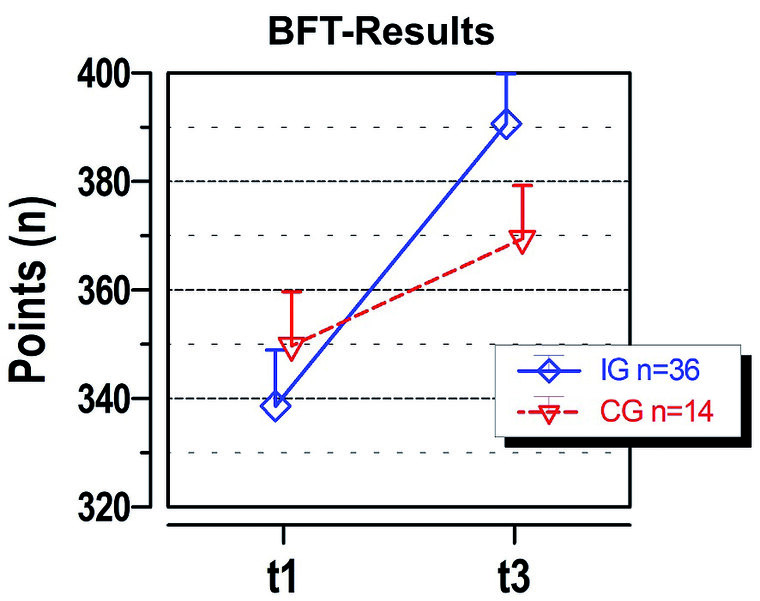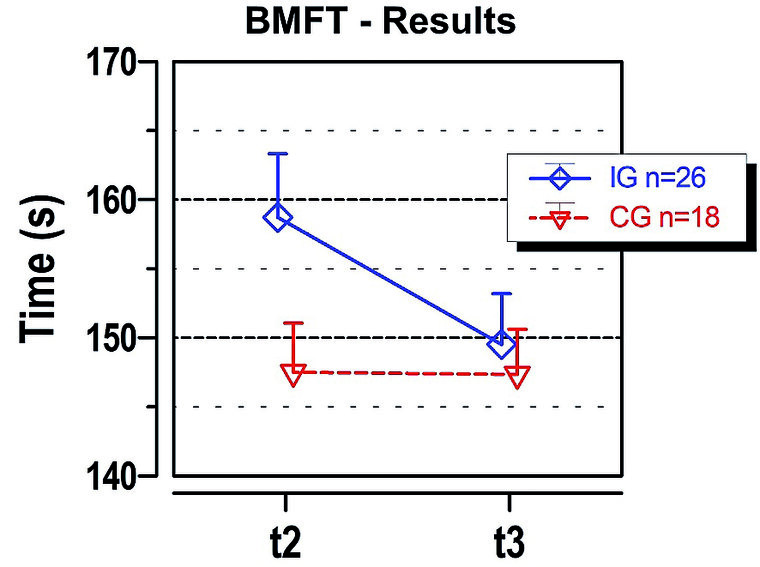Development of a new Basic Training
in the German Army: First study results
Ulrich Rohde a, Alexander Sievert a, Dieter Leyk a
a Bundeswehr Institute for Preventive Medicine, Andernach/ Koblenz, Germany
Purpose
Establishing and maintaining adequate physical fitness is a prerequisite for operational readiness of soldiers. Globally declining fitness levels have resulted in the increasing inability of applicants to meet the physical demands of twelve-week standard Basic Training ( BT).
Hence, a new concept for BT, with Physical Training tailored to individual fitness levels, was developed. Methodological key features are:
I.Classification of applicants into three performance groups (high-medium- low) at the beginning of BT based on Basis-Fitness- Test (BFT) results,
II.customized training in performance groups by full- time Physical Training instructors, and
III.increased training volume (+40h) and emphasis on sports training for the first six weeks of BT.
Purpose of the accompanying pilot study was to assess performance improvements by the new BT concept (intervention group IG) compared to standard BT (control group CG).

Fig. 1: Improvement of BFT-Results was significantly (p<0.001) higher in the IG than in the CG.

Fig. 2: IG improved their BMFT-Results significantly (p≤0.001).
Methods
Male recruits from two different BT units (IG: thirty-six, CG: fourteen ) performed the BFT at the beginning and at the end of BT. BFT consists of three events (in track suit ):
I.11x10 m-shuttle-run,
II.flexed-arm-hang in chin-up position , and
III.1000 m-run.
Military fitness was also assessed with the Basic-Military-Fitness-Tool (BMFT) after six weeks and at the end of BT. BMFT reflects essential military demands and consists of four tasks that are carried out in one single timed run in field uniform with body armor and helmet: (A) maneuver under fire, (B) casualty rescue, (C) load carrying, and (D) load lifting.
Results
As shown in figure 1 IG improved their BFT-Results from 338.6±62.2 (M± SD points) to 390.5±54.4 and CG from 349.7±37.2 to 369.4±36.6 ( p≤0.001). Performance increase in the different IG performance groups was 44.1±26.1 (IG-high), 49.9±26.5 (IG-medium), and 82.8±38.1 (IG- low) respectively.
Figure 2 shows that IG improved their BMFT-Results from 158.7±23.5 (M± SD seconds) to 149.5±18.7 and CG from 147.5±15.1 to 147.3±13.9 ( p≤0.001). Performance improvement in the different IG performance groups was 5.0±7.0 (IG-high), 10.2±5.7 (IG-medium), and 22.4±16.4 (IG- low) respectively.
Conclusion and Operational Relevance
The most important finding were markedly more pronounced performance improvements of recruits undergoing the new restructured BT compared to CG, with the lowest ranking performance group in the IG benefiting most from the customized training .
Despite comparatively few participants in this pilot study, the results underline the advantages of the new concept, that was launched Army-wide in May 2019. An ongoing standardized data collection process will be implemented. Future results will serve as database for generating of situation reports, conceptual development, and establishment of a “Fitness-Register-BT-Army”.
References (German Language)
- Hackfort D, Leyk D, Scherer HG: Psychophysische Leistungsfähigkeit und militärische Fitness vor dem Hintergrund der Einsatzerfordernisse und des Leistungszustandes der Soldatinnen und Soldaten (Abschlussbericht zum Verbundforschungsprojekt - Psychophysische Anforderungen Military Fitness II). Bonn: BMVg 2017.
- Institut für Präventivmedizin der Bundeswehr: „Steigerung der KLF vom ersten Tag an - Neustrukturierung der Grundausbildung“. Ergebnisbericht zu den Untersuchungen des Pilotdurchgang AUK401 Hagenow und AUK411. Viereck. BMVg 2018.
- Leyk D, Rohde U, Harbaum T, Schoeps S: Körperliche Anforderungen in militärischen Verwendungen: Votum für ein „Fitness-Register Ausbildung und Einsatz“. WMM 2018; 62(1-2): 2–6. mehr lesen
For the authors
Colonel (MC) Dr. Ulrich Rohde
Bundeswehr Institute for Preventive Medicine
Division A – Health and Performance Promotion –
Andernacher Str. 100, D-56070 Koblenz
E-Mail: ulrichrohde@bundeswehr.org
Oral presentation at the ICSSP 2020 in Quebec, Canada (11 to 14 February 2020)